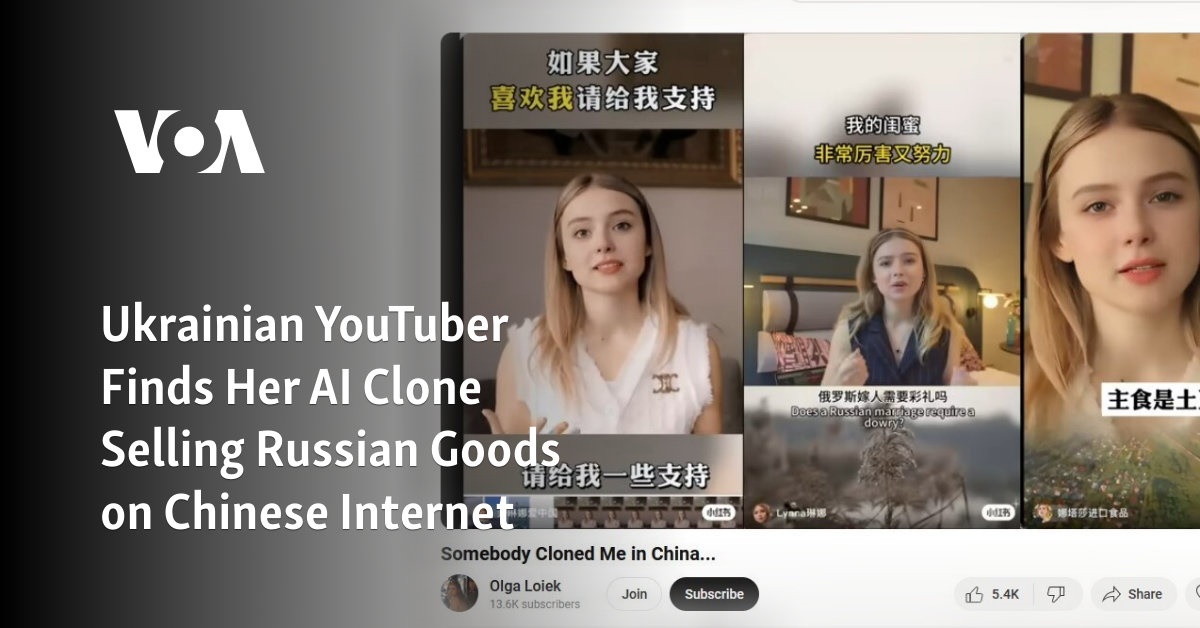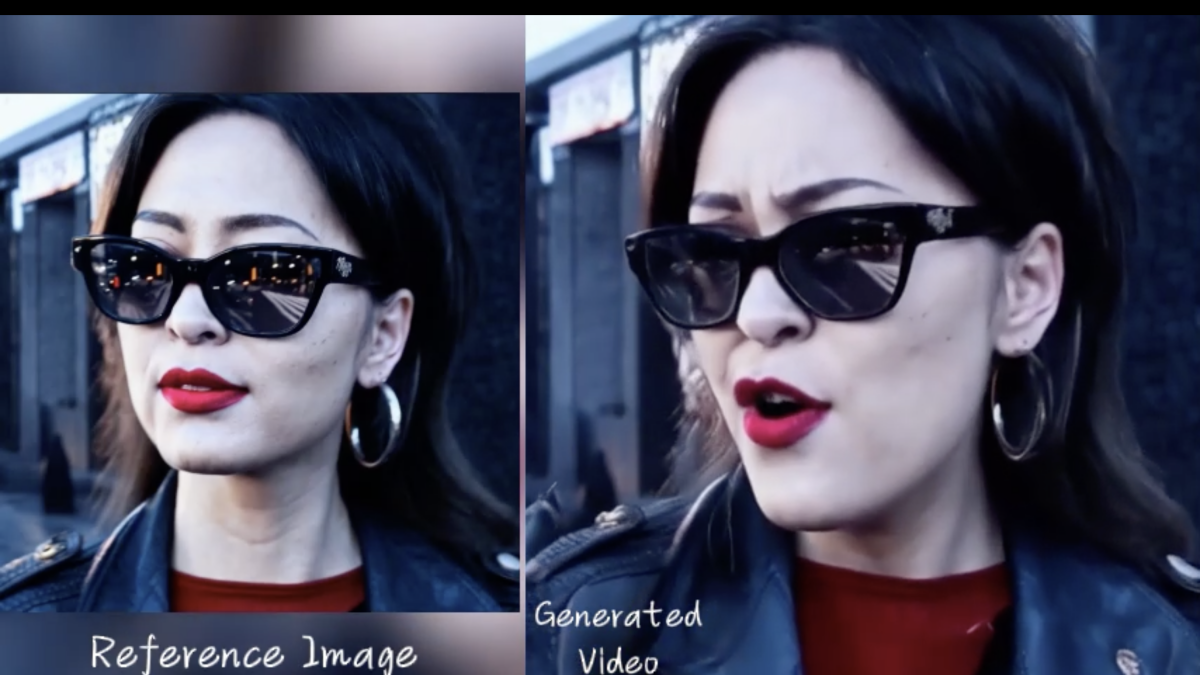Washington —
Numerous videos featuring foreign-looking women speaking Mandarin and promoting affection for China have emerged on Chinese social media platforms during the recent Lunar New Year festivities.
These videos showcase avatars generated through artificial intelligence using images sourced online without permission, leading to real-life individuals, such as Olga Loiek, recognizing themselves in these unauthorized videos. Olga Loiek, a 20-year-old Ukrainian studying cognitive science at the University of Pennsylvania, launched a YouTube channel a few months ago to discuss mental health and share her life philosophies.
However, Loiek soon began receiving messages from her followers informing her of sightings on Chinese social media platforms where she appears as a Russian woman named Natasha, Anna, or Grace, expressing love for China, speaking Mandarin, and expressing a desire to marry a Chinese man.
Upon translating the content using Google Translate, Loiek discovered that these accounts predominantly focus on topics like Sino-Russian relations, extolling the virtues of the bond between the two nations. This revelation left her feeling deeply violated by the misrepresentation.
The AI-generated avatars in these videos discuss the strong ties between Russia and China, praise Chinese culture and history, and even suggest that Russian women are eager to marry Chinese men, offering to undertake domestic chores and bear children as part of the appeal.
While some platforms like Douyin and Bilibili have flagged certain videos as potentially AI-generated, many viewers still perceive them as authentic representations of real individuals. This deception has stirred mixed reactions, with comments welcoming the “Russian beauty” and expressing positive sentiments towards the content.
Despite the fabricated nature of these videos, Loiek, hailing from Ukraine, a country in conflict with Russia since 2022, emphasizes that the scripted dialogues do not align with her personal beliefs or values. She suspects that such content aims to bolster nationalistic sentiments by portraying foreigners, like herself, as admirers of China.
On Bilibili, some videos featuring Loiek’s AI avatar bear the HeyGen logo, indicating their origin from the company’s platform. HeyGen, an AI firm headquartered in Los Angeles with operations in China since 2020, specializes in creating lifelike digital avatars, voice synthesis, and video production.
Notably, HeyGen gained recognition for producing viral AI videos of public figures like Donald Trump and Taylor Swift speaking fluent Mandarin in 2023. The company’s valuation soared to $75 million, as reported by Forbes.
Despite HeyGen’s policy prohibiting the use of real individuals’ likenesses without explicit consent, unauthorized videos featuring Loiek’s likeness circulated on Chinese social media platforms. Following complaints from Loiek and her YouTube followers, several imitating accounts have been removed.
The Chinese government’s regulations introduced in early 2023 aimed to control deepfakes and synthetic media, mandating consent for using individuals’ images or information in such content.
Loiek’s ordeal, shared on YouTube and Chinese social media, garnered sympathy and calls for stricter regulations on AI manipulation. Major Chinese tech companies like Baidu and Tencent are heavily investing in AI technologies, with services like digital human cloning gaining momentum.
Tencent and Xiaoice, a Chinese AI studio affiliated with Microsoft, offer services to create AI avatars resembling real individuals for a nominal fee. These AI avatars have also been implicated in disinformation campaigns promoting pro-China narratives and denigrating the U.S.
In a report issued in September 2023, the U.S. State Department warned about China’s potential to exploit AI technologies to influence global audiences and shape economic and security decisions in its favor.
Despite the challenges posed by AI manipulation, Loiek remains resolute in her commitment to YouTube and vows to continue sharing content. She advocates for regulatory frameworks to prevent such deceptive practices in the future.
This report includes contributions from Adrianna Zhang.










